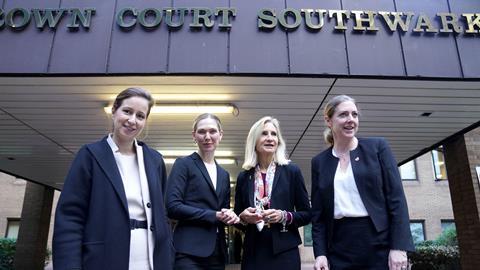The UK subsidiary of commodities trader Glencore was today ordered to pay £281 million in a fine, confiscation order and costs in the largest ever such penalty in a corporate criminal conviction. Glencore is the first business to be convicted under the Bribery Act 2010 for the active authorisation of bribery rather than a failure to prevent it.
The sentencing at Southwark Crown Court followed an investigation by the Serious Fraud Office which revealed that Glencore had paid $29 million in bribes to gain preferential access to oil in Cameroon, Equatorial Guinea, Ivory Coast, Nigeria and South Sudan. Glencore Energy UK pleaded guilty in June this year to seven counts of bribery.
Passing sentence, Mr Justice Fraser said 'the facts demonstrate not only significant criminality but sophisticated devices to disguise it'. The 'sophisticated offending was sustained over prolonged periods of time,' the judge said. The penalty included a £93.5m confiscation order and a £182.9m fine.
The fine is a welcome morale-booster for the SFO, which opened an investigation into Glencore in 2019, focussed on the activity of the London-based West Africa desk. The investigation uncovered a trail of text messages, large cash withdrawals and deliberately concealed payments.
In Nigeria, Equatorial Guinea and the Ivory Coast, Glencore was revealed to have used well-connected local agents to funnel bribes into state-owned oil companies and government ministries, often disguising a bribe as an unspecified 'service fee', 'signing bonus' or 'success fee' in financial reports.
In 2011, the court heard, two Glencore executives from the West Africa desk flew to South Sudan by private jet, carrying $800,000 in cash. The money was paid via a local agent to officials in the newly established government in South Sudan, and this was followed by a further $275,000 in cash.
Between 2012 and 2015, another Glencore trader withdrew a total of $8.2m in cash from the company’s Swiss cash desk, recorded as 'office expenses'. This, along with $5.5m of 'service fees' withdrawn in cash by a Nigerian agent, was periodically flown, again on private jets, to Cameroon.
SFO director Lisa Osofsky said: 'This has been a landmark case in UK anti-bribery enforcement. For years and across the globe, Glencore pursued profits to the detriment of national governments in some of the poorest countries in the world. The company’s ruthless greed and criminality have been rightfully exposed.’
Glencore’s chairman Kalidas Madhavpeddi, who attended the two-day sentencing hearingm said in a statement: 'The conduct that took place was inexcusable and has no place in Glencore.' The company has 'engaged in an extensive programme of corporate reform', the statement said.
Pictured above: Serious Fraud Office director Lisa Osofsky (second right) outside Southwark Crown Court with her team
This article is now closed for comment.




























7 Readers' comments